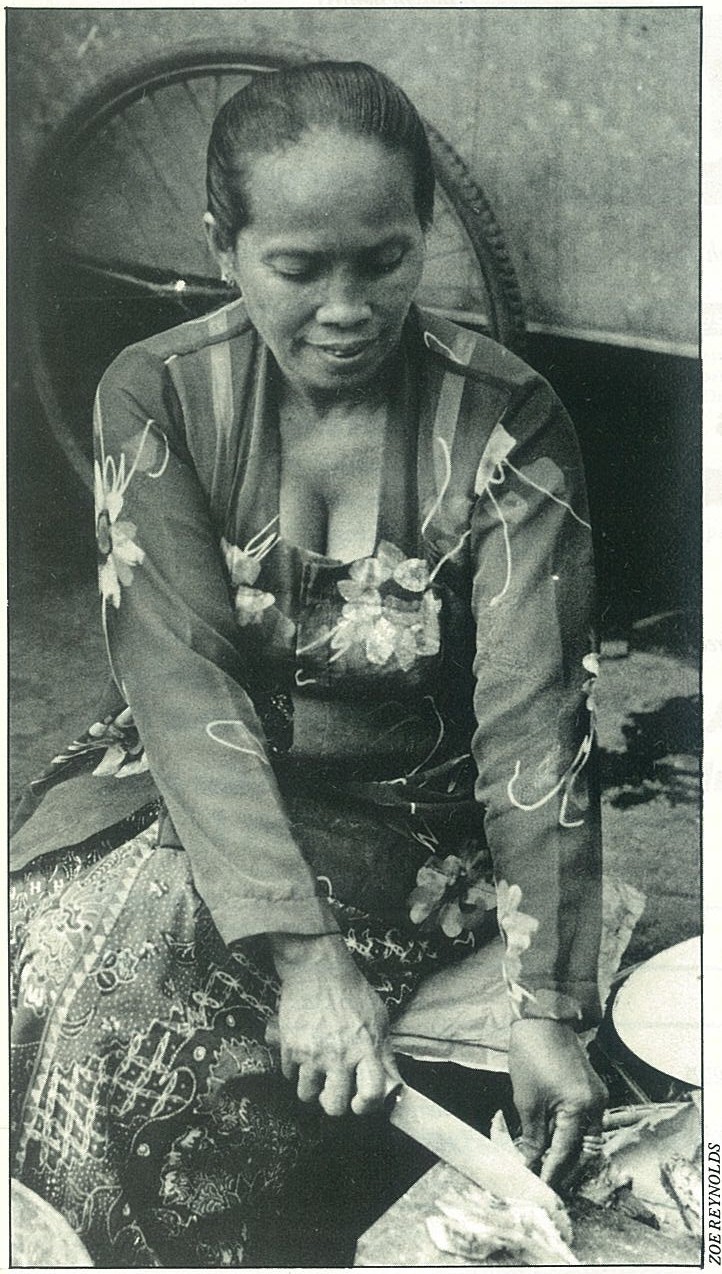Two young Solo poets believe poetry should serve the people
Rossi Von Der Boch
Although present-day Indonesian writers are on the whole reticent about proposing ways to change the nature and direction of their society, many are sharp observers of their surroundings. Some are disturbed by the circumstances they observe, and feel compelled to communicate their concerns to those around them. Two young Solo poets, Wiji Thukul Wijaya and Omi Intan Naoimi are examples of this. Both are prolific writers, and share a deep commitment to raising awareness about the realities of life for most people in Indonesia.
A kampung poet
Thukul is 24 years old, the son of a becak driver. He has had only a couple of years of high school education. Thukul supports himself by selling newspapers, and at last contact was working as a furniture polisher in a small shop. His family and kampung friends live on that cutting edge of life that is always vulnerable to the shifts in Government policies.
Becak drivers have suffered a disastrous decline in business in recent years, with the advent of buses. So, life is lived on credit.
Thukul is completely dedicated to the people among whom he has always lived - the urban poor. His involvement on the fringes of mainstream artistic life in Central Java has given him a wider perspective than that of most of his peers. He is unequivocal about the fact that he writes about kampung people, for kampung people, in an attempt to raise awareness among them and to break down the culture of silence, which, he thinks, is suffocating any hope for social change in Indonesia.
Written in a simple, often proclamatory style, in a Javanese-Indonesian hybrid language, Thukul's poetry contains powerfully authentic and perceptive description and observations. He often reads his poems aloud in the kampungs, to the people about whom the poems are. 'Dar man' and 'Song of a becak driver' (included here) are among poems Thukul calls 'hits'.
Thukul has received warnings from the local authorities about his poetry on several occasions, and is presently banned from reading poetry in his own kampung.
Thukul has had poems published in a number of magazines and newspapers, and has been involved in many poetry readings and theatre activities in Central Java.
A high-school poet
Omi is 17 years old, confidently articulate far beyond her age, involved in all manner of theatre and other artistic activities. She is the daughter of well-known and sometimes controversial poet Darmanto Yatman, but is adamant that she be judged only by her own merit. As the elder of two sisters, in a family with no boys, Omi has enjoyed a liberal upbringing which has encouraged the development of her artistic talents. Like Thukul, she is Christian. She is still at high school, and part of a much more sophisticated circle than her kampung counterpart.
The social concern which Omi displays in her poetry is understandably quite different from Thukul's. Omi has an acute sense of the world outside of Indonesia. Where Thukul's poetry is located almost completely within his own local area, Omi's poetry is often a response to her knowledge of international situations, as well as to her observations of her own country. Omi's works are more concerned with issues, than with individuals. Although she doesn't regard herself as a feminist, she is clearly aware of women's issues and gives voice to these in some of her poetry.
The poetry of Omi and Thukul is powerfully descriptive of the situations of individuals and communities over whelmed by the external forces at work in their lives. As yet it is limited in its sense of how to control or respond to the situations described, but both these poets have faith in the role of art in the determination of social process. 'We must return poetry to people', Thukul said. It is that belief that gives the works of both these poets their impact.
Inside Indonesia 12: Oct-Dec 1987
{jcomments on}



